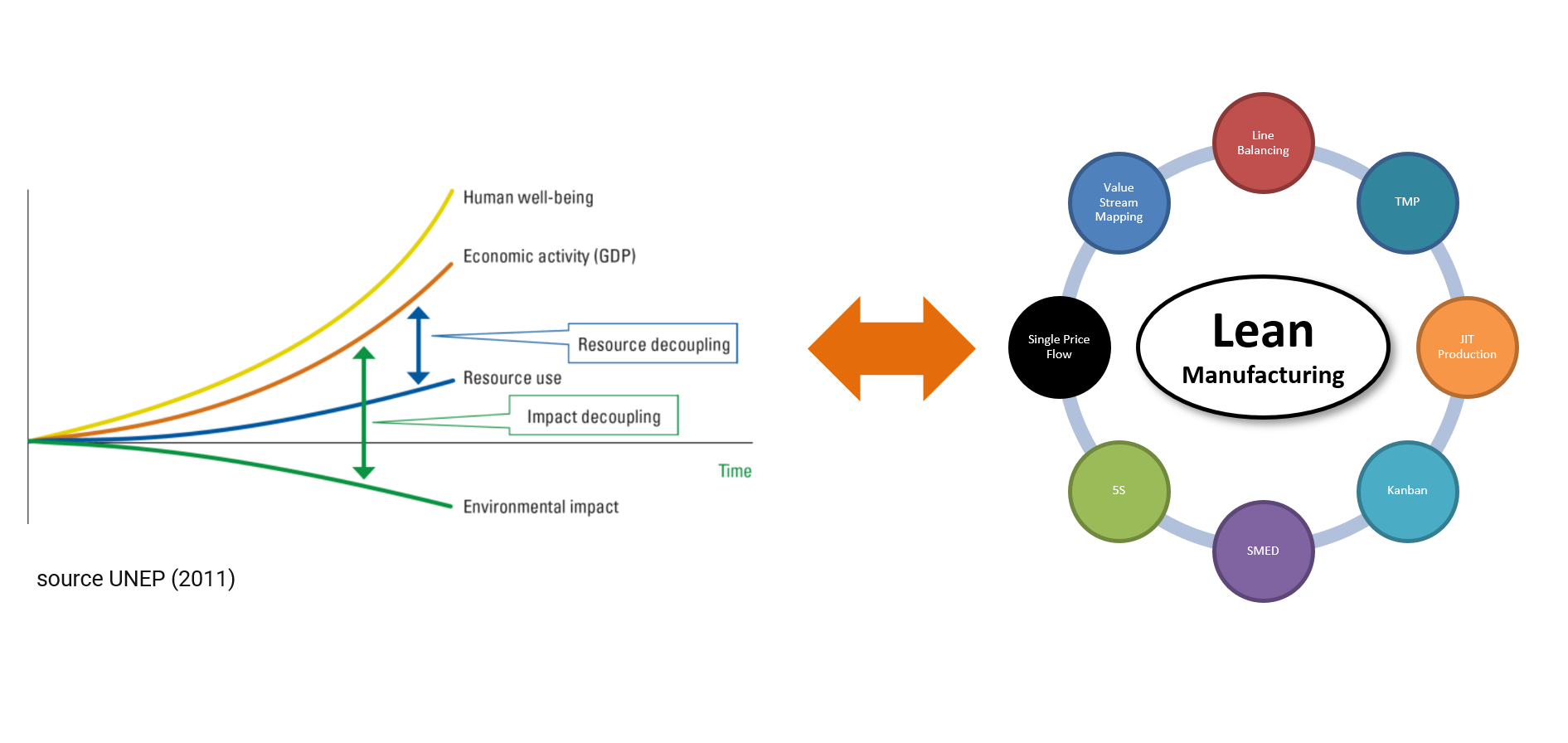CYBER Engineering
Designing for Carbon Neutrality
Technology for environmental impact decoupling
- APPROACH
Decoupling economic efficiency from environmental responsiveness
As part of designing carbon neutrality, promoting environmental decoupling is one of the measures that should be adopted in the future. No matter how much decarbonizing energy or equipment is introduced, it is meaningless if CO2 is emitted to prepare it (greenwashing). In order to promote environmental decoupling, an important approach is to predictively evaluate “on-site activities” and “environmental response” in the design system at the design stage, which have not been linked in system design, and to directly link these impact indicators. We will proceed to design in such a way as to “decouple” economic efficiency and environmental response, which have a trade-off relationship.
Environmental impact Decoupling and Lean Production*.
Next, it is important to consider how to promote environmental decoupling.
One approach to environmental decoupling is to reduce the cost of capital investment to reduce environmental impact. In the opposite direction, another promising approach is to reduce the environmental impact per unit cost of current facilities by increasing productivity even with the current facilities.
The latter is a direction that makes effective use of current facilities and resources, and is a way of thinking that lowers the hurdles to environmental responsiveness without requiring large-scale installation of new facilities or changes in power sources.
This approach is an extension of the conventional “lean production,” or the concept of increasing productivity by eliminating waste, and is therefore close to the Japanese industrial culture. The key point here is, as noted in the previous section, to numerically evaluate “how much” kaizen and productivity improvement will contribute to reducing environmental impact. In other words, a numerical evaluation mechanism is required to determine which measures are meaningful in terms of both environmental impact and economic efficiency.
*Lean” means “lean” in Japanese. The Lean Production System is a production management method developed by James P. Womack and Daniel T. Jones of MIT, who studied the Toyota Production System, 5S, Kaizen, and other methods, and after organizing and systematizing them, popularized them.



